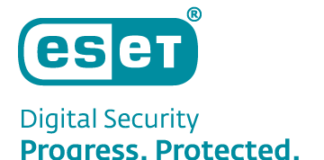April is National Autism Awareness Month: A recent report by Deloitte Canada and auticon Canada, employers need to do more to understand neurodiversity, reduce barriers to employment for those with autism, and create thoughtful structural supports to foster deeper inclusion among the autistic community. The report, Embracing neurodiversity at work: How Canadians with autism can help employers close the talent gap, also shows that the autistic community in Canada is often underrepresented and underemployed, despite its potential in providing access to new skills and talent.
The joint report with auticon Canada, a global technology consulting firm focused on helping companies engage with autistic talent through deployment, education, training, and coaching, surveyed 454 adults across the country. Among the highest ranked barriers currently facing the autistic community is employers’ focus on social competency during the interview process, with 40 per cent of survey respondents citing it as a “great challenge”. Another barrier impacting employee retention is a lack of structural support systems, including flexible work policies.
“The autistic community has so much to offer, and unfortunately, a lot of the potential of neurodiverse Canadians is either lost on employers, or goes untapped,” said Roland Labuhn, Partner, Digital & Analytics, Deloitte Canada. “From the hiring process to a clear lack of support systems for employees, the autistic community still faces significant barriers in finding meaningful work, and it’s important for employers to recognize that removing these obstacles will lead to a more inclusive workplace for all employees.”
As highlighted in the Deloitte Canada report, Catalyst: A vision for a thriving Canada in 2030, it’s imperative that every member of our society has the opportunity to participate in Canada’s social and economic prosperity. In 2020, 48 per cent of Canadian companies reported they were experiencing workforce shortages—double the rate disclosed 10 years earlier. Yet, while Canadian businesses have made significant strides toward improving diversity, equity, and inclusion on many fronts, employment barriers remain for neurodiverse Canadians.
Among the survey respondents, 45 per cent say they feel the need to mask their autism while at work, and 47 per cent claim they aren’t comfortable disclosing their autism to employers. Despite efforts to build awareness and understanding of neurodiversity, more than half (55 per cent) of survey respondents indicate they feel there’s a stigma associated with autism. Likewise, 56 per cent say they’re treated differently once people learn of their autism, and 42 per cent claim they’ve been the target of discrimination at work.
“It’s alarming that the autistic community continues to feel they can’t bring their whole, authentic selves to work, or disclose their neurodiversity to employers,” said Garth Johnson, CEO of auticon Canada. “Until people feel comfortable sharing this information, the door to the workplace will never truly be open to the autistic community. In an incredibly competitive hiring environment, it is critical for Canadian employers, across all industries, to do more to learn about autism, and neurodiversity generally, and launch sincere, thoughtful efforts to tap into this wellspring of talent.”
Source: Deloitte Canada















